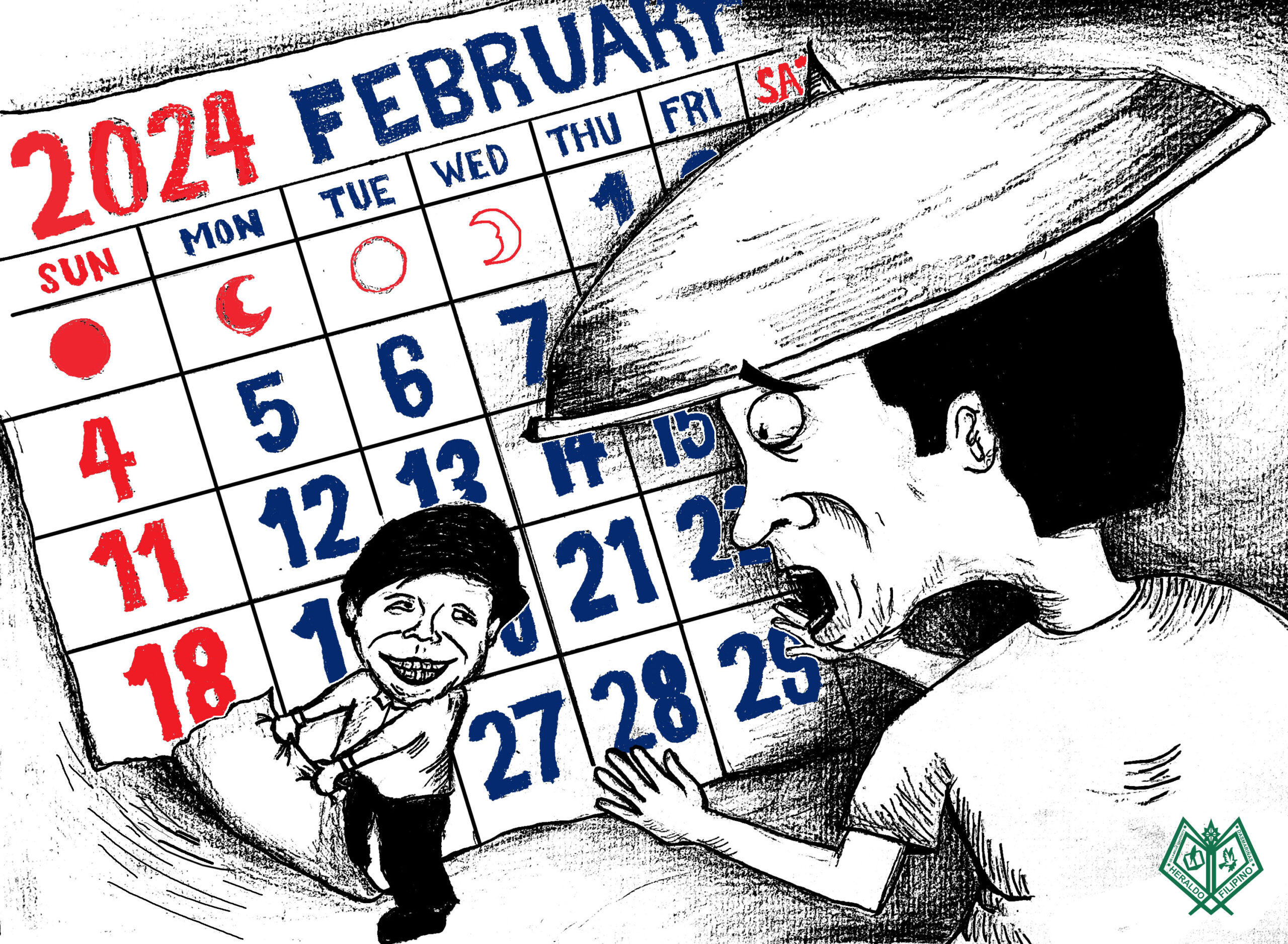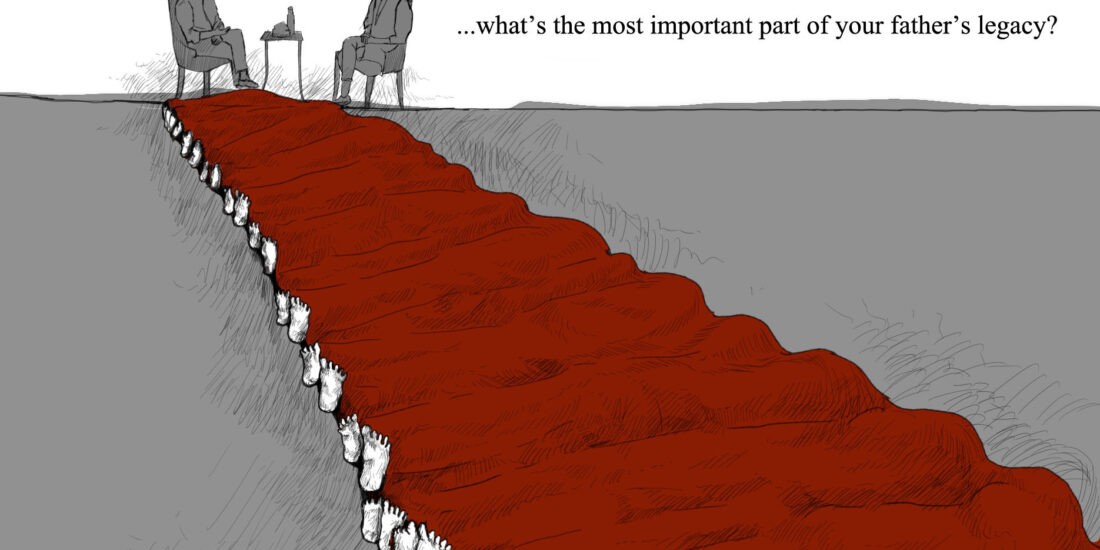The march to remember
Dictatorship impales democracy. In 1986, amidst the Filipinos’ desire for freedom and rage over the abuse of power by the late dictator Ferdinand Marcos Sr., a revolution began. This marked the beginning of a revolution that freed the nation from the hands of a dictator. Spanning four days, from the 22nd to the 25th of February 1986, the EDSA People Power Revolution took place, which later emerged as one of the significant events in Philippine history. Even after 38 years, the remarkable feats that took place on EDSA continue to hold merits of the people’s uprising against a fascist regime. Today, the historic event is spat on as the very kin of the ousted dictator sits on Malacañang.
Tracing back its history
On February 20, 1986, Marcos claimed himself as the winner of the snap elections against Cory Aquino. Aquino, on the other hand, urged civil resistance, advocating for strikes and boycotts against businesses and media outlets that are associated with Marcos and his cronies. She rallied support for her cause with a massive gathering of two million people at the Luneta Park, rallying them for a people’s victory. As a response, Marcos warned of reinstating Martial Law if Aquino were to organize a widespread strike across the country.
Two days later, Juan Ponce Enrile, the defense minister of Marcos at the time, intended to denounce himself from Marcos Sr.’s government. The plan outlined during their meeting would be that the rebel forces would launch a strike on the Malacañang Palace on February 23 at 2:00 AM, with Colonel Gregorio “Gringo” Honasan taking the lead.
The next day, on February 23, the Church’s call in backing Enrile and Ramos was publicly announced. Archbishop of Manila Jaime Sin supported the advancements of Enrile in the proposed coup. Soldiers were observed receiving provisions from civilians gathered in rebel camps. In a speech delivered from Cebu, Aquino urged the Filipino people to stand behind Enrile and Ramos, appealing to the “decent elements within the military” to align with the defectors. Additionally, she implored Marcos to resign for the sake of a peaceful transfer of power.
On February 24, civilians gathered around Camp Crame as a response to Jaime Cardinal Sin’s call, as news of Marcos’ soldiers preparing to attack the rebels’ stronghold became known. Despite the threat of tear gas, the assembled crowd stood firm and refused to disperse. Subsequently, another crowd congregated at Edsa, where barricades of burning tires, sandbags, and rocks were erected to block access to Camp Crame.
On the revolution’s concluding day, February 25, soldiers opened fire on civilians at Nagtahan Street, with several being injured. In a phone conversation with Labor Minister Blas Ople, Ferdinand Marcos mentioned that First Lady Imelda Marcos advised him against resigning. However, Marcos consented to his family’s preparations for departure shortly after. On that day, people were urged to gather at Club Filipino in San Juan to keep an eye on any potential attempts by Marcos to interfere with the presidential inauguration of Aquino. Senior Justice Claudio Teehankee officiated the oath-taking ceremony for Cory Aquino, with Salvador Laurel as her Vice President. Between 5:00 and 6:00 PM of the same day, Marcos reached out to Enrile, pleading with him to order the rebels to stop firing at the Palace. He then emphasized his intention to leave the premises. Inside the Palace, everyone began to pack the string of money that was never theirs. At 9:52 PM, Radio dzRH relayed the news that the Marcoses have fled the country, which was later confirmed by the US Air Force TV station FEN.
Under the global spotlight, Filipinos garnered widespread praise for this revolt. Marcos’ claim of victory over Aquino in a bid to prolong his grip on power was met with vehement opposition, which delivered one of the final blows to his 20-year reign.
On its erasure
Years of efforts aimed at cleansing the flawed image of the Marcoses surfaced with their reclaim of power when Marcos Jr. won presidency back in 2022 and now, the bloodline once again has control over the nation it once oppressed.
The EDSA People Power Anniversary, annually commemorated on February 25, is no longer a holiday in 2024, as per President Ferdinand Marcos Jr.’s Proclamation No. 368, which he signed last year on October 11.
The Office of the President released a statement regarding the matter and said that it acknowledges the significance of the event but explains that it was not included in the list of special non-working days for 2024 due to it falling on a Sunday. The statement highlights that declaring it a holiday wouldn’t have a significant socio-economic impact as it coincides with most workers’ rest day. Ironically, the Lunar New Year, within the same month, fell on a weekend yet the preceding weekday was announced as a special non-working holiday.
This decision of Malacañang in omitting this from the list of holidays for the year 2024 further pushed democratic advocates to outline numerous commemorative events for the EDSA People Power this year as the people vowed to never forget their power.
The removal of this significant history is too alarming to overlook, and may we never be fooled. No amount of excuses will ever diminish the very significance of why this event is being commemorated in the first place. No amount of erasure will ever alter people’s knowledge of our history, our oppressors, and the impact of every event that our nation had faced.
Following through
Martial Law, under Marcos Sr.’s rule, was a dark chapter in Philippine history. It was stained by corruption, abuse of human rights, and dictatorship. Many Filipinos were subjected to extrajudicial killings, torture, forced disappearances, abuse, and silencing those who dare to challenge his authority. Today, with the culture of impunity and authority abused exercised by the previous administration, the practice of injustices continues.
EDSA People Power became a pathway for the Filipino people in shedding light on oppression and proved how collectively the people can make a change. In every year that it is being commemorated, the people have their own ways of remembering this momentous feat in our country’s history, further preserving the truth in our country’s history, preventing it from being manipulated, and commending those who fearlessly stood with us till the very end.
This year, democracy advocates use the EDSA revolution anniversary to underscore their opposition to charter change. Charter change (or Cha-Cha), also known as constitutional reform, pertains to the process of amending or revising the provisions outlined in the 1987 Philippine Constitution. There is no urgency to revise the current constitution as there are more pressing issues that should be focused on yet Marcos Jr.’s ploy to push Cha-cha during his term can impose a change that can benefit him and the 1 percent, never the masses. One of the main goals of the constitutional reform is to loosen the country’s economic provisions on foreign investments. However, isn’t the country already infested with foreign investments to the extent that local production is slowed? In Cavite alone, foreign corporations have taken over the industry with a string of development projects and which in return, displaces the people despite being original settlers in the area. Privatization of lands has also been prevalent and houses are being demolished just to replace it with housings that the masses could never even afford. The constitutional revisions proposed will only serve the few, but they guise it as something the most would benefit from, seeing as the people’s initiative have been greatly weaponized just to let Cha-cha advance.
EDSA birthed the 1987 Constitution that we experience today. Confirmed through a nationwide vote in February 1987, the present Constitution replaced the 1973 Constitution, which facilitated Marcos’s prolonged occupation in office. As the youth is a vital part in the movement, several student council organizations nationwide have united to reject attempts by the Marcos administration to amend or revise the current Constitution.
Numerous events, scheduled before, during, and after its exact date, are lined up to commemorate the 38th year anniversary of the EDSA People Power Revolution.
Never forget, regardless
As we strive towards a progressive society, wherein oppressors persevere to cover up their crimes for the sake of their own images, intending to revise history to their own accord, may we never forget the significance of every encounter that our country had faced and how it led us to where we are today. The only way is the truth, and it is in these very annual commemorations where we preserve it best and keep it alive.
As we commemorate the EDSA People Power Revolution in its 38th anniversary, may we never forget to remember—regardless of its omission, and regardless of how many times the oppressors try to distort our history before our eyes.
We focus on our history and what it can impact on the present. History repeated itself as a Marcos is once again in power, but we still hold the chance to repeat history once more if we hold spirit of EDSA and the people’s revolution with us.





